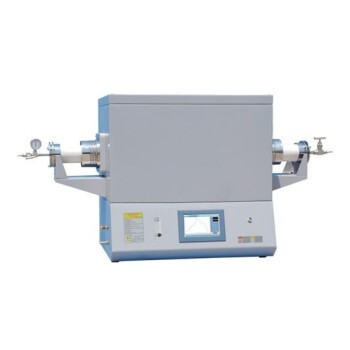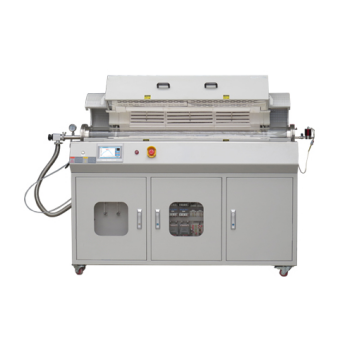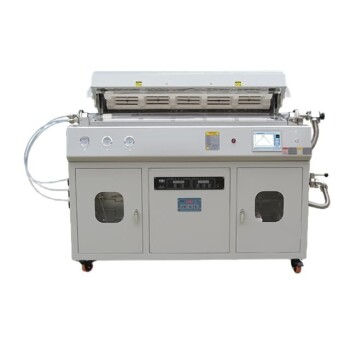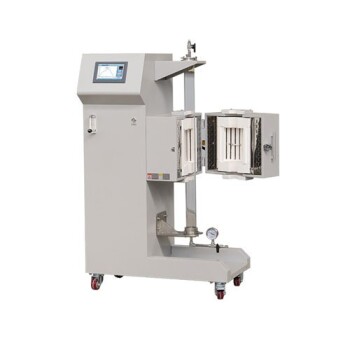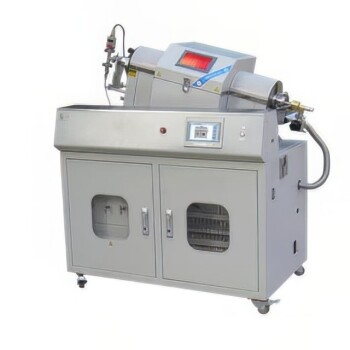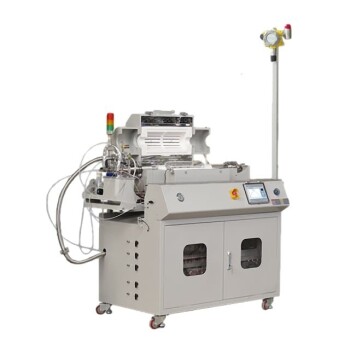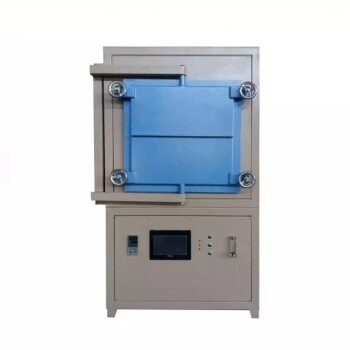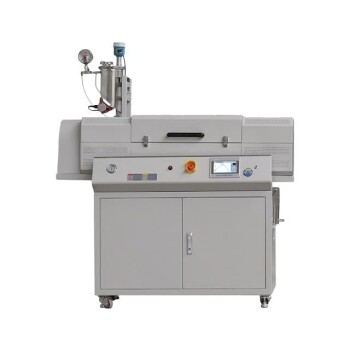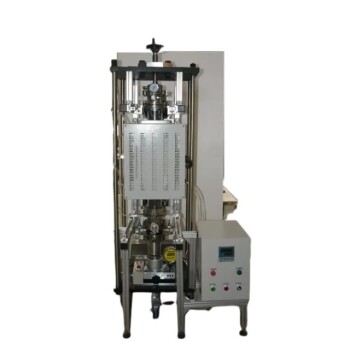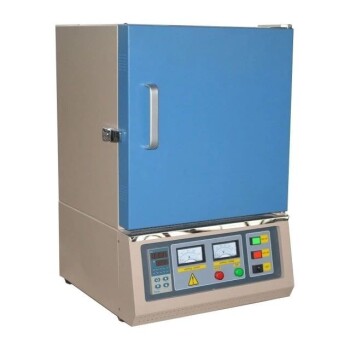In heating applications, the primary advantages of glass tubing are its transparency, excellent thermal shock resistance, high-temperature stability, and its properties as an electrical insulator. These four characteristics make it a uniquely suitable material for specific scientific and industrial processes where observing the material while heating it in a controlled, electrically isolated environment is paramount.
While many materials can withstand heat, glass tubing is chosen when direct process observation, electrical isolation, or purity is as critical as the temperature itself. It solves the problem of needing to see and control a reaction in real-time.
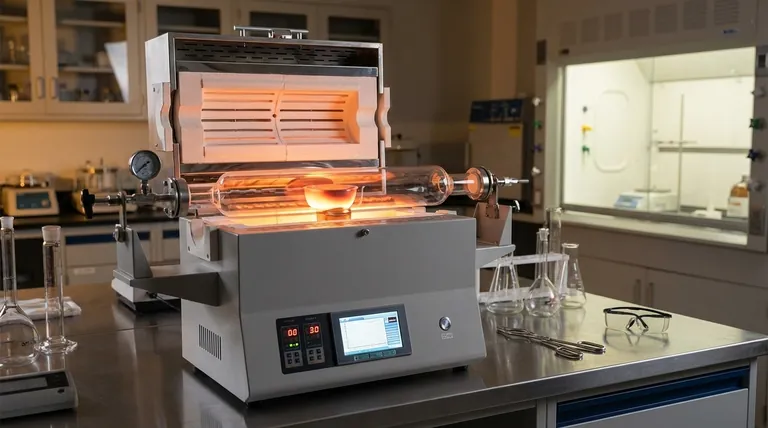
The Unique Properties of Glass in Thermal Systems
The decision to use glass is rarely based on a single feature. Instead, it is the combination of its optical, thermal, and electrical properties that makes it indispensable for certain tasks, particularly in laboratory and research settings like tube furnaces.
Unmatched Visibility with Transparency
The most obvious advantage of glass is its transparency. In many applications, direct visual monitoring of a process is not a luxury but a necessity.
This allows researchers and operators to observe color changes, phase transitions (melting, boiling), or material flow in real-time. This immediate feedback is critical for process control and scientific discovery.
Stability Under Rapid Temperature Change
Glass, particularly borosilicate or quartz, possesses good thermal shock resistance. This means it can withstand rapid changes in temperature without cracking.
In a laboratory, processes often require quick heating and cooling cycles. A material with poor thermal shock resistance would fracture, leading to experiment failure and potential safety hazards.
Performance at High Temperatures
While not reaching the operational ceiling of some ceramics or refractory metals, specialized glass like quartz can operate continuously at temperatures exceeding 1000°C.
This makes it suitable for a wide range of thermal processes, including annealing, synthesis, and purification, where its other properties are also required.
Critical Electrical Insulation
Glass is an excellent electrical insulator. This is a critical safety and functional feature in many heating setups.
For example, if heating elements are wrapped directly around the tube, or if induction heating is used, the non-conductive nature of glass prevents short circuits and ensures the energy is directed into the sample, not the tube itself.
Understanding the Trade-offs and Limitations
To make an informed decision, you must also understand where glass is not the right choice. Its unique benefits come with clear trade-offs.
Mechanical Fragility
The primary drawback of glass is its brittleness. Compared to metal or ceramic tubes, glass is far more susceptible to breaking from mechanical impact or stress.
Careful handling is non-negotiable, and it is unsuitable for high-vibration or physically demanding industrial environments where durability is the top priority.
Absolute Temperature Ceilings
Every material has a temperature limit. While "high-temperature resistant," glass has a lower maximum operating temperature than materials like alumina (a ceramic).
For processes requiring temperatures consistently above 1200°C, a ceramic tube is almost always the necessary choice.
Chemical Compatibility
Though largely inert, glass is not immune to all chemicals. It can be etched by hydrofluoric acid and attacked by strong hot alkaline solutions. You must verify that your specific process chemistry is compatible with the type of glass being used.
Making the Right Choice for Your Application
Choosing the right tube material requires you to weigh these properties against your primary goal.
- If your primary focus is real-time process observation: Glass is the superior choice, as its transparency provides data no other material can.
- If your application involves induction or direct-element heating: The electrical insulation of glass provides safety and efficiency that a metal tube cannot.
- If your highest priority is durability and impact resistance: A stainless steel or other metal alloy tube is a more robust option, though you will sacrifice visibility.
- If your work demands ultra-high temperatures (above 1200°C): A ceramic tube, such as one made from alumina, is the industry standard and the correct technical choice.
Ultimately, selecting glass tubing is a deliberate decision to prioritize visibility and electrical isolation within its specific operational limits.
Summary Table:
| Advantage | Key Benefit |
|---|---|
| Transparency | Enables real-time visual monitoring of processes |
| Thermal Shock Resistance | Withstands rapid temperature changes without cracking |
| High-Temperature Stability | Operates reliably at temperatures over 1000°C |
| Electrical Insulation | Prevents short circuits and ensures safe energy transfer |
Ready to enhance your laboratory's heating processes with tailored solutions? Leveraging exceptional R&D and in-house manufacturing, KINTEK provides diverse laboratories with advanced high-temperature furnace solutions. Our product line, including Muffle, Tube, Rotary Furnaces, Vacuum & Atmosphere Furnaces, and CVD/PECVD Systems, is complemented by our strong deep customization capability to precisely meet unique experimental requirements. Contact us today to discuss how we can optimize your setup for superior performance and reliability!
Visual Guide

Related Products
- 1700℃ High Temperature Laboratory Tube Furnace with Quartz or Alumina Tube
- 1400℃ High Temperature Laboratory Tube Furnace with Quartz and Alumina Tube
- High Pressure Laboratory Vacuum Tube Furnace Quartz Tubular Furnace
- Split Multi Heating Zone Rotary Tube Furnace Rotating Tube Furnace
- Laboratory Quartz Tube Furnace RTP Heating Tubular Furnace
People Also Ask
- How is a high-temperature tube furnace utilized in the synthesis of MoO2/MWCNTs nanocomposites? Precision Guide
- What safety and reliability features are incorporated into a vertical tube furnace? Ensuring Safe, Consistent High-Temp Processing
- What is an example of a material prepared using a tube furnace? Master Precise Material Synthesis
- What safety measures are essential when operating a lab tube furnace? A Guide to Preventing Accidents
- How do vertical tube furnaces comply with environmental standards? A Guide to Clean, Efficient Operation
